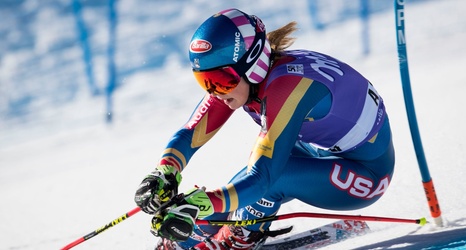MAMMOTH LAKES, Calif. — Alone in the darkness just before sunrise, Mikaela Shiffrin sleepily trudged up a snowy knoll toward a single light illuminating the hut where she would change into her ski gear. It was the first day of May last year.
A month earlier, Shiffrin, 22, had won the women’s World Cup overall title, a grueling, 41-race competition that officially crowned her as the best women’s skier on the planet.
Except many in the ski community thought otherwise, and Shiffrin knew it. Her doubters considered her a specialist who won the title by piling up victories in her best event, the slalom, the safest of five Alpine events.
